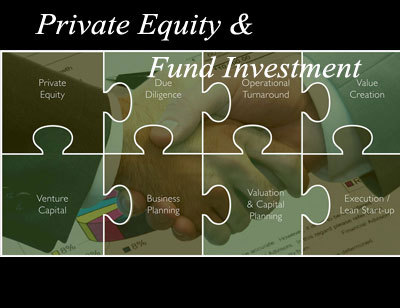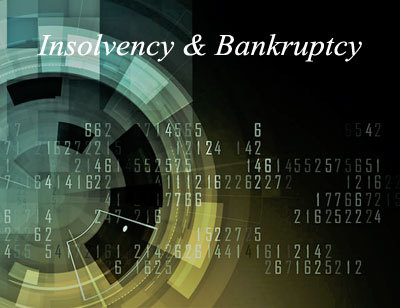#debt restructuring services
Text

Debt Restructuring: Regain Control of Your Finances
If your business is struggling with debt, FASP Consulting LLC can help you regain control and get back on track. Our debt restructuring services are designed to provide you with the support and guidance needed to manage and reduce your debt effectively. We work with creditors on your behalf to negotiate better terms and create a manageable repayment plan.
0 notes
Text
Debt Restructuring Services Dubai
Looking for a company to help you with debt restructuring in Dubai?
Then, You are at the right place.
We are the Leading Debt Restructuring Services Dubai offering organization.
We can help you negotiate with your creditors and get you back on track.
We have a team of experienced professionals who can offer you the best possible solution
for your financial situation. Contact us today for a free consultation.

0 notes
Text


















Equi Corp Legal has the best lawyers in Delhi NCR
#Corporate Disputes Litigation Lawyers in Delhi#Insolvency Bankruptcy NCLT Lawyers in Delhi#Private Equity Funds Investment Transaction Advisory M&A Lawyers in Delhi#Technology E-Commerce Fintech Blockchain Lawyers in Delhi#Regulatory Compliance Legal Audits in Delhi Noida#Director Investor Shareholder Dispute Litigation Lawyers in Delhi#Sports Gaming lawyers in Delhi#Startup Investor Lawyers in Delhi#Banking NBFC Financial Services DRT Debt Restructuring Lawyers in Delhi#Corporate lawyers in Delhi#Arbitration Lawyers in Delhi#Consumer Protection Lawyers in Delhi#Commercial Civil Disputes Litigation Lawyers in Delhi
10 notes
·
View notes
Text
The Importance and Strategies of Corporate Debt Restructuring: A Guide by Sapient Services
Corporate debt restructuring is a crucial process for companies facing difficulties in meeting their debt obligations. Without effective debt restructuring, companies may face bankruptcy, which can negatively impact their stakeholders. In this article, we will discuss the importance of corporate debt restructuring and some common strategies that companies can use to restructure their debt.

The Importance of Corporate Debt Restructuring Corporate debt restructuring plays a vital role in helping companies manage their debt obligations while ensuring their long-term financial viability. By restructuring their debt, companies can reduce their financial burden, manage their cash flow, maintain jobs, and continue to serve their customers.
Additionally, it can help companies regain the confidence of their stakeholders, including lenders and investors, who may be hesitant to provide additional funding if they are concerned about the company’s financial health.
Strategies for Corporate Debt Restructuring There are several strategies that companies can use to restructure their debt. Below are some of the most common strategies:
Negotiating Lower Interest Rates Negotiating lower interest rates with creditors is one of the simplest strategies for corporate debt restructuring. This can help reduce the total cost of the debt and make it more manageable for the company. However, it may be challenging to negotiate lower interest rates, particularly if the company has a poor credit history. In such cases, the company may need to consider offering some form of security or collateral to persuade creditors to agree to lower interest rates.
Extending Repayment Periods Extending the repayment period is another strategy for corporate debt restructuring. This involves stretching out the time over which the company will repay its debt, which reduces the amount of the monthly payments. This can help companies to manage their cash flow more effectively. However, it also means that the company will be paying interest for a longer period, which can increase the total cost of the debt.
Converting Debt into Equity Converting debt into equity is another strategy for corporate debt restructuring. This means that creditors become shareholders in the company, and the debt is effectively forgiven. This strategy can be useful if the company’s financial performance is expected to improve, as it can provide creditors with an opportunity to benefit from future growth. However, this strategy can dilute existing shareholders’ ownership and control of the company.
Debt-for-Equity Swaps A debt-for-equity swap is another way to restructure corporate debt. This involves offering creditors the option of swapping their debt for equity in the company. This can be an attractive option for creditors who are concerned about the company’s ability to repay its debt. It can also help to reduce the company’s debt burden and improve its financial position. However, as with debt-to-equity conversions, this can also dilute existing shareholders’ ownership and control of the company.
Selling Assets Selling assets to raise funds to pay off debt is another option for corporate debt restructuring. This can help to reduce the company’s debt burden and improve its financial position. However, this strategy may not be ideal if the company is selling its core assets, as it could negatively impact its long-term profitability and sustainability.
Bankruptcy and Reorganization If the company’s financial situation is dire, bankruptcy and reorganization may be necessary. This involves a legal process in which the company’s debt is restructured through negotiations with creditors. The company may need to sell off assets or reorganize its operations to reduce costs and improve profitability. While bankruptcy can be a challenging process, it can provide companies with a fresh start and a chance to restructure their debt and operations to achieve long-term sustainability.
Conclusion
Sapient Services Pvt. Ltd. has extensive experience in providing financial and valuation services to companies in a variety of industries.
With a team of experts in debt restructuring, risk assessment, and financial management, Sapient Services can help companies navigate the complex process of corporate debt restructuring and develop effective strategies to manage their debt obligations.
Whether a company needs to negotiate lower interest rates or explore more complex restructuring options, Sapient Services can provide the guidance and support needed to achieve financial stability and long-term sustainability.
3 notes
·
View notes
Text
Maximize Your Financial Potential with KICK Advisory Services

Unlock the full potential of your financial future with KICK Advisory Services. Our comprehensive financial advisory services provide personalized guidance and strategic solutions to help you achieve your financial goals. From investment planning to wealth management, we're here to support you every step of the way.
#advisory services#financial advisory services#registered investment advisor#working capital management#business valuation services#corporate debt restructuring
0 notes
Text
Debt Relief Made Easy with LIN International Debt Solutions
LIN International offers proven Debt Solutions to lighten your financial burden. Discover our comprehensive approach to debt management and regain your financial stability.
#personal loan settlement and litigation services#credit card settlement plan#debt advisory and restructuring#dubai debt consolidation service#loan settlement services#mortgage restructuring services in the uae#credit card settlement#home loan settlement in uae
0 notes
Text
Navigating tax equity in the US presents its fair share of challenges. However, by skillfully leveraging tax incentives and mastering the system's intricacies, one can unlock the full potential of renewables. It's a clever way not only to drive economic success but also to make a significant positive impact on the environment. 💚💼 Making Green by Going Green!
✨ What sets this model apart? ✨
🔹 Tailored financial analysis that precisely addresses the needs of PV farm projects.
🔹 Efficient management of capital accounts and careful consideration of tax basis.
🔹 Flexibility to explore back leverage loan options for optimized financing.
🔹 Seamless allocation of income and cash flow/waterfall among partners.
🔹 Reliable projections to empower confident decision-making.
🔹 Robust reporting and analysis capabilities.
👉 Access the model now to unlock the full potential of your PV farm partnerships. Let's propel the renewable energy revolution forward!
#Equity financing#Equity allocation#Energy sector#Energy production#Energy pricing#Energy policy#Energy market#Energy efficiency#Energy consumption#Discounted cash flow#Depreciation#Decision-making#Debt service#Debt restructuring#Debt repayment#Debt financing#Cost analysis#Cash reserves#Cash management#Cash flow projections#Cash flow optimization#Cash flow modeling#Cash flow management#Cash flow liquidity#Cash flow forecasting#Cash flow analysis#Capital structure#Capital investment#Capital accounts#Budgeting
0 notes
Text
Collectius is a FINTECH company that offers its clients a professional and highly efficient consumer credit management service.
Collectius is a debt management company founded on the principle that “doing good is good for business”. A trusted restructuring and servicing partner to financial institutions and commercial companies in Asia. Our business is to purchase portfolios of non-performing consumer and SME loans, and recover them. We also service financial institutions to help them resolve overdue accounts. Customer-centric approach and a data-driven platform powered by machine learning. Our cutting-edge debt management cloud system based on Microsoft Dynamics enables Collectius to deliver a seamless, personalized customer experience powered by omni channel communication, automation, API connectivity and more.

1 note
·
View note
Text
Debt Restructuring Service for Consolidation & Relief
Debt restructuring Service is a strategic solution for achieving financial freedom. Professional services, such as debt management and debt consolidation, can help you reduce your monthly payments and lower your overall debt. With the right guidance, you can learn how to manage your finances better and create a workable budget plan to get out of debt faster. Self Debt Relief provides Debt Restructuring Service in US. We give the perfect solution to how you can get rid of the debt. Contact us for more info and get the perfect solution.
0 notes
Text
Equi Corp Associates (ECA) has the best Director Investor Shareholder Dispute Litigation Lawyers, Sports Gaming lawyers, Startup Investor Lawyers, Banking NBFC Financial Services DRT Debt Restructuring Lawyers in Delhi.
0 notes
Text

Debt Restructuring: Regain Control of Your Finances
If your business is struggling with debt, FASP Consulting LLC can help you regain control and get back on track. Our debt restructuring services are designed to provide you with the support and guidance needed to manage and reduce your debt effectively. We work with creditors on your behalf to negotiate better terms and create a manageable repayment plan.
0 notes
Text
#Debt Management Dubai#Debt Management Services Dubai#Legal Advice Consultation Dubai#Legal Help For Credit Card Debt UAE#Debt Restructuring UAE#Loan on credit Card UAE
0 notes
Text
Global South countries are currently experiencing a debt crisis wherein governments like that of Sri Lanka are unable to service the debts they hold that are denominated in a foreign currency. Such debts began to balloon across the Global South in the aftermath of the oil crises of the 1970s. Following the Volcker Shock—and the accompanying steep rise in interest rates for dollar-denominated debts—countries that held those bonds found themselves in a situation similar to that of today. At that time, Global North governments, acting through the World Bank and International Monetary Fund (IMF), agreed to a series of bailouts conditional on Structural Adjustments Programs (SAPs). SAPs allowed these institutions to intervene directly in the fiscal policy of indebted countries and to implement neoliberal reforms which reduced public spending and opened up economies to transnational corporations.
The explicit goal of SAPs was to kickstart growth, as the only means for indebted countries to pay back their loans and to lift communities out of poverty—the implicit goal being the creation of societies mirroring those of their former colonisers. Yet the last forty years have yielded the opposite result: an explosion of inequality both within and between countries and debts at their highest level this century. To understand this trend, we need to recognise that loans to the Global South were never about achieving prosperity; instead, the intention was to reassert neo-colonial control over the decolonising world. Decolonisation reduced the Global North’s access to the cheap labour, energy and raw materials that colonialism had ensured for centuries. Debt relationships between the former colonisers and colonised recreated the conditions for the plunder of the Global South. It turned poor countries into captive markets for companies based in the Global North and created a race to the bottom in environmental and labour standards meant to attract foreign investors.
Under this arrangement, indebted countries need to grow their economies to service their debts. Growth relies on exports priced at disadvantageous rates that create ecologically unequal exchange between the Global South and Global North. Economies centred on the export of low-value-added commodities prevent the Global South from achieving full decolonisation. Fortunately, scholars of Modern Monetary Theory have shown that it is not necessary to prioritize growth for the sake of growth before investing in what countries actually need. Instead, what matters is a country’s productive capacity determined by social and ecological boundaries, and here the Global South is far richer than the Global North. To invest in necessary programmes like a Job Guarantee and Universal Public Services, however, countries must first free themselves of colonial currencies and end the cycles of debt that trap them in poverty.
Given that stopping ecologically unequal exchange is a cornerstone of degrowth, the need for debt restructuring is clear. The only question is how to achieve this revolutionary reform.
91 notes
·
View notes
Text











#Corporate lawyers in Delhi#Arbitration Lawyers in Delhi#Consumer Protection Lawyers in Delhi#Commercial Civil Disputes Litigation Lawyers in Delhi#Corporate Disputes Litigation Lawyers in Delhi#Insolvency Bankruptcy NCLT Lawyers in Delhi#Private Equity Funds Investment Transaction Advisory M&A Lawyers in Delhi#Technology E-Commerce Fintech Blockchain Lawyers in Delhi#Regulatory Compliance Legal Audits in Delhi Noida#Director Investor Shareholder Dispute Litigation Lawyers in Delhi#Sports Gaming lawyers in Delhi#Startup Investor Lawyers in Delhi#Banking NBFC Financial Services DRT Debt Restructuring Lawyers in Delhi
0 notes
Text
Corporate Debt Restructuring | Sapient Services

A Corporate Debt Restructuring is a way of restructuring a company’s debts. This process is highly preferred by a large majority of businesses as it provides multiple benefits including reduced costs, improved customer satisfaction, and ability to access new capital growth opportunities.
4 notes
·
View notes
Text
[VOA is US State Media]
A report by researchers from Johns Hopkins University is giving China better than expected marks for its performance in helping to restructure the crippling debt loads carried by some African countries.
The report is based on a detailed evaluation of Beijing's participation in the Debt Service Suspension Initiative, or DSSI, an international vehicle for developed nations to support struggling countries like Angola and Zambia.
The DSSI was introduced in 2020 at the start of the global pandemic by the International Monetary Fund and World Bank, which suggested the world’s 20 largest economies, known as the G-20, temporarily halt the collection of loans from the world’s poorest nations.
U.S. Treasury Secretary Janet Yellen and World Bank Chief David Malpass have recently accused China of being a barrier to debt relief, and U.S. Vice President Kamala Harris was in default-stricken Zambia last week urging the country's bilateral creditors — of which China is the biggest — to do more on restructuring Zambia’s debt.
But, despite some caveats, the report released this week by Deborah Brautigam and Yufan Huang from the China Africa Research Initiative found that overall, China “fulfilled its role fairly well as a responsible G-20 stakeholder.”
The analysts added that China “did implement the minimum steps of the DSSI fairly well, communicating with other players, and following through on pledges.”
According to the available data, Chinese creditors accounted for 30 percent of all claims and contributed 63 percent of debt service suspensions in the countries that participated in the DSSI.
“The metric by which you evaluate [China’s] performance depends on what your expectations were for the initiative,” Brautigam told VOA, noting that this was the first time the world’s second-largest economy had joined a multilateral initiative – a move one G-20 source called “miraculous.”
Brautigam said it was obvious that a new architecture is needed to deal with debt relief because the current system is dominated by the Paris Club, a group of wealthy Western nations that started lending to developing countries in 1956. In recent years, there have been more major new creditors, like China and bondholders.
“So what evolves out of this is really up in the air,” she said, adding that all lenders “need to be in together because otherwise you get all these suspicions, you know, worries about free riding.”
Successes and failures
The study concluded that China might have achieved more during the DSSI if not for fears that countries would simply take advantage of any debt relief to repay other creditors.
In Zambia, for example, Chinese creditors wanted assurances their relief wouldn’t be used to pay off the bondholders, while the bondholders were concerned that any relief from their side might go toward paying off China.
China was “totally justified” in its suspicions on this front, Brautigam said, because “in most countries, all of those creditors continued to be paid.”
“We need something that is simultaneous - you know, they all need to be in the room together … so that we don’t have this first-mover problem,” she added.
In Zambia, the Chinese decided against suspending their debt payments while the country was still paying bondholders, but this didn’t happen in Angola, China’s largest African borrower with around $20 billion in debt to Chinese entities. In that case, Chinese creditors provided 97% of the debt relief over the two-year period without asking for assurances that Angola wouldn’t continue making other repayments.
The researcher’s third African case study, Kenya, showed how China’s DSSI treatment was different from the other two. Chinese banks agreed to provide relief at first but later stopped loan disbursements and suspended only some 40 percent of the expected amount in 2021.
Moving forward
The study also showed how China's banks and central government, despite the country's top-down political structure, do not always act in unison. The fragmented nature of the Chinese system and bureaucratic hurdles often remain a barrier to debt relief.
Being part of the DSSI helped address that because it “pushed the Chinese government to align interests among fragmented banks and bureaucracies with conflicting goals. This process, still under way, is a necessary step toward full acceptance of the necessity for debt restructuring in the post-pandemic era,” the researchers found.
The DSSI ended in December 2021 and has been superseded by what’s known as the Common Framework to continue helping indebted countries like Zambia with their restructuring.
In January, World Bank chief Malpass said, “China is asking lots of questions in the creditors' committees, and that causes delays, that strings out the process.” Last month, Yellen accused Beijing of leaving developing countries “trapped in debt.”
China has called on the IMF and World Bank to also offer debt relief, with President Xi Jinping saying at the G-20 summit last year: “International financial institutions and commercial creditors, which are the main creditors of developing countries, should take part in the debt reduction and suspension for developing countries."
The Chinese Embassy in Zambia hit back at the U.S., calling Yellen’s “debt trap” comments “irresponsible and unreasonable.”
Ultimately, the study found, “the DSSI was a success in what some saw as its primary goal: to bring China into a multilateral, G20-supervised forum where Beijing has an equal voice.”
It now remains to be seen how the challenges highlighted by the pandemic relief program spill over into the current debt negotiations.
6 Apr 23
95 notes
·
View notes